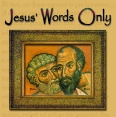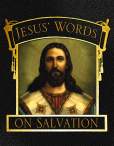Short Biography
The Context: Papal Claims Power to Depose Emperors and Kings
It was at this time that Louis of Bavaria was about to reopen against the pope the struggles of Philippe le Bel against Boniface VIII. John XXII had just denounced Louis as a supporter of heretics, excommunicated him, and ordered him to cease within three months administering the affairs of the Empire. ("Marsilius of Padua," New Catholic Encyclopedia.)
Pope Boniface versus Philippe le Bel
Perhaps the best known of Boniface's authentic statements is the bull Unam Sanctam, 1302, claiming a divine hierarchy in which spiritual power excels any earthly power in dignity and nobility and establishing the earthly power; the spiritual power can judge the earthly, whereas only God can judge the spiritual. Anyone who does not accept the pope's position is a heretic, and it is essential to the salvation of any human creature to be subject to the Roman Pontiff. (Joan Ferrante, The Political Vision of the Divine Comedy (Princeton, New Jersey: Princeton University Press, 1993 at ch.2.)
Boniface tried to excommunicate Philip at different times. On one occasion, 1301, when no one would publish the decree, the pope complained to a French official: "Nos habemus utramque potestatem" ("We have both powers," spiritual and temporal); the Frenchman replied "Utique Domine, sed vestra est verbalis, nostra autem realis" ("That may well be, my Lord, but yours is verbal, ours is real," Dupuy,Histoire du Differend 193, Riviere, Le. Probleme, 121). Boniface tried again, in 1303, to excommunicate Philip and place his subjects under anathema unless they renounced their oaths to the king; but before he could publish the bull, Philip had him captured in a rather blatant display of real power. Boniface's position as pope was complicated by the fact that questions had been raised about his legitimacy because he had ascended while the previous pope, Celestine V, was alive. If the pope was the bridegroom of the church, there could be no other husband while he lived, divorce being frowned upon even in regard to an institution.(Joan Ferrante, The Political Vision of the Divine Comedy (Princeton, New Jersey: Princeton University Press, 1993 at ch. 2.)
Pope John v Ludwig of Bavaria
When Ludwig exercised some of the powers of the Emperor without papal confirmation John excommunicated him (1324). Ludwig led an armed force into Italy to help his allies there. In Rome he had himself crowned Emperor, not by the pope but by representatives of the Roman people, and set up there a rival pope. One of his advisers at this time was Marsilius of Padua. After eight months in Rome Ludwig retreated to Pisa and then to Germany; his 'pope' made his peace with John XXII. Ludwig made many efforts to reach an agreement with John XXII and his successors Benedict XII and Clement VI but without success. He died, still excommunicate, in 1347. This was the last major conflict between Emperor and Pope; the issue was whether the pope had power to confirm or disallow the election made by the Imperial electors. The papal claim implied that the Empire was subject to the pope. (See Offler, 'Empire and papacy: the last struggle', Transactions of the Royal Historical Society, n.s. 5, vol. 6, 1956, pp. 21-47.) ( R.J. Kilcullen, "Tape 8: Marsilius of Padua," Macquarie UniversityPOL167: Introduction to Political Theory (1996).)
Marsilius's Defensor Pacis
1. Introduction
2. The Church Has No Right To Coercive Power
The whole community is the Legislator. It establishes a Ruler (pars principans), who executes the decisions of the Legislator about the offices needed in the state (including the priesthood). Marsilius argues (I.xvi) that it is better to elect each ruler individually, rather than to elect a ruler to be succeeded by his heirs; e.g., an elective monarchy (as the Roman Empire was) is better than an hereditary monarchy. However, the Legislator may decide to establish an hereditary monarchy. It may also choose to establish a collective Ruler (e.g., an aristocracy). At all events, the constitution which the Ruler must execute is decided on by the whole multitude or its weightier part. Id., summarizing Marsilius, supra, at 49-54.



